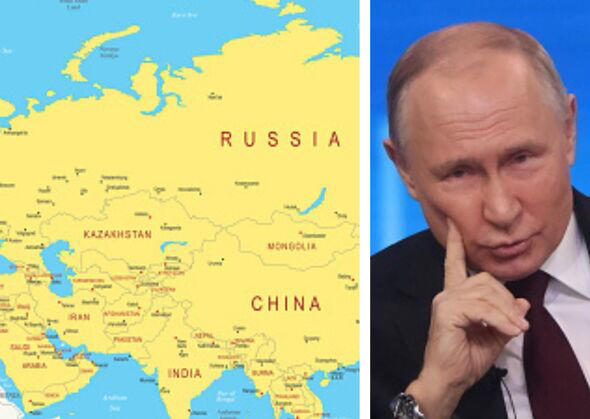Table of Contents
ToggleAssassination of Vladimir Putin: What It Could Mean for Russia and the World
Assassination of Vladimir Putin could lead to widespread chaos and anger in Russia. Explore the potential implications and alternative strategies for political change in this story.
Assassination of Vladimir Putin is a topic that has generated much debate, especially with recent discussions among exiled Russian politicians and Western historians. A group called the Congress of People’s Deputies, composed of exiled Russian politicians, recently met in Poland to discuss a bold and controversial plan. They believe that to remove Putin and end his regime, NATO should support political assassinations and extend sanctions against Russia. They argue that this drastic approach is necessary for real change in Russia.

© Getty
The Exiled Politicians’ Proposal
The Congress of People’s Deputies has put forward a seven-point plan that includes the assassination of Vladimir Putin as a means to forcefully remove him and his inner circle from power. They argue that this is no longer an option but a duty for NATO to help push through “revolutionary action” in Russia.
Historian’s Warning Against Assassination
However, not everyone agrees with this approach. British historian Mark Galeotti warns that the assassination of Vladimir Putin would likely lead to widespread chaos and anger among the Russian population rather than a smooth transition to a better government. Galeotti notes that Putin has survived multiple murder plots since coming to power in 1999, and the ongoing war in Ukraine has only increased resentment against him.
Galeotti argues that if Putin were to die suddenly, power would not necessarily pass to a fellow older politician but rather to a new generation of leaders. These new leaders, whom he describes as “opportunist kleptocrats,” might maintain Putin’s nationalist rhetoric to stay in power but are more interested in personal gain than any ideological crusade against the West.
He believes that a Western-backed assassination campaign, even if successful in breaching Putin’s formidable security, would not lead to a democratic revolution. Instead, it would trigger an explosion of anger and outrage in Russia.
Alternative Strategies for Political Change
Galeotti suggests that Ukraine’s Western allies should focus on fostering internal dissent and criticism of Putin’s government as a more effective strategy. Reports of dissatisfaction among Russian troops due to poor leadership and high casualties have been constant since the invasion of Ukraine began. Additionally, families of conscripted soldiers have defied Putin’s crackdown on dissent to demand the return of their loved ones from the front lines.
By capitalizing on these internal issues, Galeotti believes a more significant political threat to Putin’s regime can be fostered from within Russia. This approach avoids the risks associated with the assassination of Vladimir Putin and instead leverages existing discontent to create pressure for change.
© Provided by Dagens.com (UK)
Potential Consequences of Assassination
If the assassination of Vladimir Putin were to occur, the immediate aftermath would likely be chaotic. The sudden removal of a long-standing leader often leads to instability, as various factions within the government and military vie for power. In Russia’s case, this could mean a period of uncertainty and potential violence as different groups struggle to fill the power vacuum.
Furthermore, the Russian population’s reaction to an assassination, especially one perceived to be backed by the West, could be one of intense nationalism and anger. Rather than rallying behind a new democratic movement, many Russians might unify against what they see as external interference in their country’s affairs. This could strengthen hardline elements within the government and make a peaceful transition even more difficult.
The Role of NATO and International Community
The Congress of People’s Deputies argues that NATO’s involvement in the assassination of Vladimir Putin is not just an option but a moral duty. They claim that the Kremlin has already caused massive bloodshed, killing hundreds of Russians on the front line every day, along with numerous Ukrainians, both military and civilians.
However, the international community must carefully consider the repercussions of such actions. An assassination could escalate the conflict, leading to a broader war and further destabilization in the region. It could also set a dangerous precedent, making political assassinations a more common tool in international relations.
Conclusion
The assassination of Vladimir Putin is a highly controversial and complex issue. While some believe it is a necessary step to end his regime and bring about change in Russia, others warn of the potential chaos and anger it could unleash. Historian Mark Galeotti advocates for leveraging internal dissent and criticism within Russia as a more effective and less risky strategy. As the Congress of People’s Deputies prepares to present their proposal at the NATO summit, the international community must weigh the moral and practical implications of such drastic actions carefully. The path to real change in Russia may lie not in assassination but in fostering the seeds of discontent already present within the country.
ALSO READ: